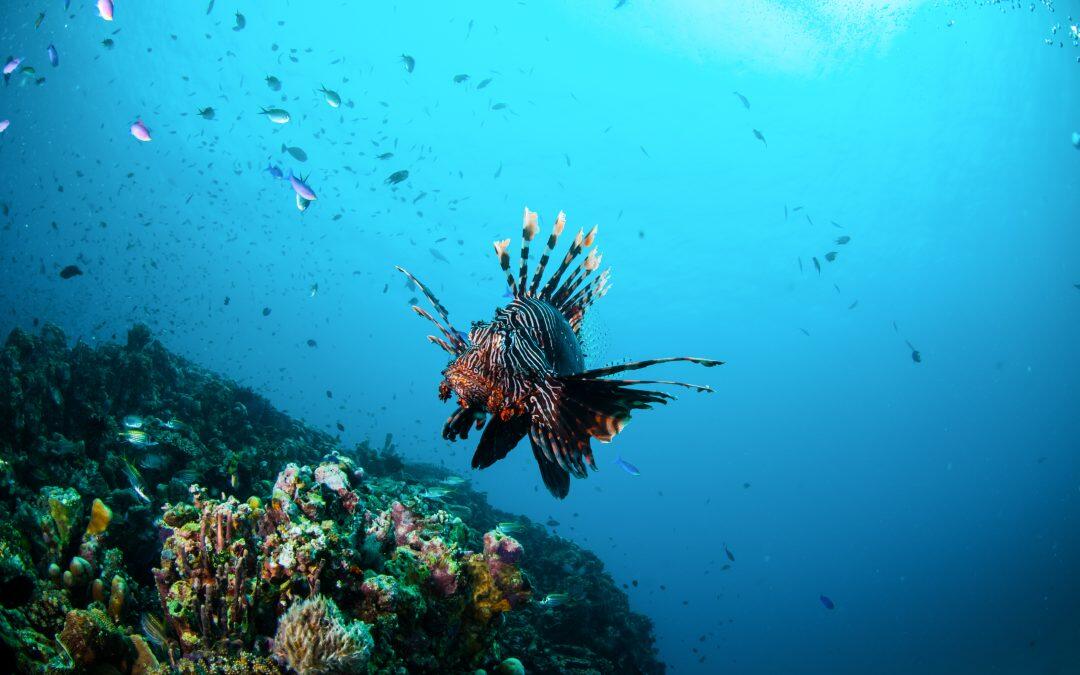A poisonous tropical fish could be expanding in the Mediterranean, alarming conservationists fear could decimate other species. Lionfish, an armed invasive animal with poisonous spines whose painful sting can even be fatal to humans, has been detected in waters near Turkey, Cyprus and Lebanon, warns the International Union for Conservation of Nature.
“The fish is extending its domains and that causes concern,” says Maria del Mar Otero, IUCN. The animal, also known as fire devil fish, is native to the South Pacific and the Indian Ocean. Mysteriously the fish reached the Atlantic few decades, which has been wreaking havoc even in the Caribbean. Environmentalists fear the Eastern Mediterranean arrival of this fish, whose attack causes extreme pain, vomiting and respiratory paralysis, and can have devastating effects on the rest of the marine ecosystem.
Lovers aquariums
Despite its beautiful colors and calm movements, even the sharks are very close to the lionfish, they might follow them sometimes. This can attract more invaders, due to the weakening of the local fauna and flora, says Carlos Jimenez, marine biologist at the Cyprus Institute. Therefore, the lionfish “Have a very negative impact on the ecosystems and local economies” in the region, says the expert.
Overfishing is harmful, but lionfish can make an exception.
The first sightings of lionfish in the Mediterranean occurred near Lebanon in 1991. More recently they have been detected in Lebanese and Tunisian waters, according to IUCN. The fish could have been introduced in these ecosystems aquarium lovers, who would have somehow lost via the Suez Canal from the Red Sea.
According to the US agency National Oceanic and Atmospheric Administration (NOAA), the lionfish is the biggest threat to Atlantic reefs, and has already been established along the southern coast of the United States, the Caribbean and Gulf of Mexico. Experts are still confused and do not know how the fish reached the Atlantic, but like in the Mediterranean, believe that human beings had to do with it and speculate that some people might have gotten rid of lionfish of their hurling aquariums ocean 25 years.
NOAA notes that cold temperatures of ocean waters are also an environmental factor controlling the distribution of species on a global scale. Therefore, when the sea water is heated as a result of climate change, invaders like the lionfish benefit and can expand their range of action to still virgin ecosystems.











